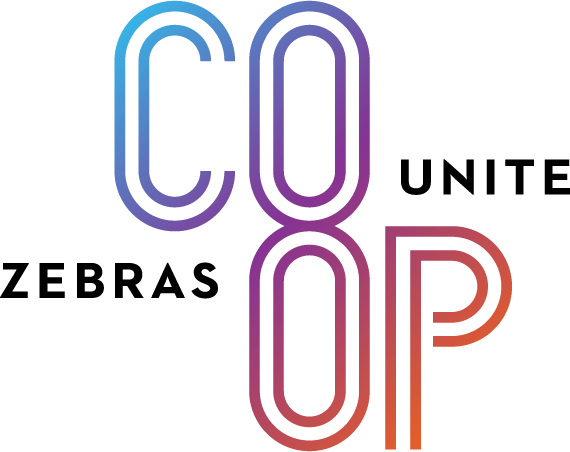Success Stories
We help Zebra founders find pathways to aligned capital.
1. Indie.VC invests in Savvy Co-Op.
Zebra founder Jen Horonjeff is the CEO of Savvy Co-Op. Savvy is set up as a multi-stakeholder cooperative. Those stakeholders are divided into four classes: patients, Savvy employees, founders and investors. Up until securing investment from Indie.VC, Savvy has been entirely bootstrapped and sustained by its revenue.
Cooperatives can oftentimes face trouble raising venture funding. That’s because their business models don’t generally align with the incentives of traditional venture capitalists,
In the fall of 2019, Zebras Unite co-founder Astrid Scholz referred Jen to Indie.VC through their Scout Program.
“I have to say a lot of investors are, first of all, not curious,” said Jen. “And those that are curious — and we’ve gone down the path with people like that — think we’re this cool new thing, but just don’t understand how it’s going to jive with the rest of their fund. So there aren’t great mechanisms in place to kind of bridge the gap between what people know and what the new economy could look like.” Savvy represents (what we believe!) is the first aligned venture capital investment into a co-operative.
Read the full TechCunch article for more and watch a replay of our Exit to Community Session, “When Co-Ops and Venture Capital Meet.”
“Savvy represents everything we’d like to see in the future of impact business — shared ownership, diverse perspectives, and aligned incentives, tackling one of the largest industries on the planet.”
— Bryce Roberts, Indie.VC
2. Zebra Founder raises $400K on Wefunder.
How can we better connect Zebra founders with affordable crowdfunding opportunities? That was the design challenge as we embarked on a pilot partnership with WeFunder, a Public Benefit Corporation with a mission to “defend the American dream.”
We started by polling our community to better understand their needs, questions, concerns, and if there was an appetite for such a partnership. WeFunder launched a Zebra section where aligned founders could affiliate their campaign. In exchange, they got a discount off of the fees from their raise.
Founder Keoke King launched Participant Assistive Products on the platform. His company, a B Corp, designs and builds affordable wheelchairs for kids. Their prices is $800 vs. $2,300 and fills a gap in the market.
To date, Keoke has raised over $425,000 on WeFunder from 176 investors. The referral fee that Zebras Unite received from this partnership went directly to the company, and we made our first investment!
It was a win for all: Keoke found aligned, discounted financing on his own terms, and Zebras Unite shareholders joined him on the journey.
3. Chisos invests in Re-Nuble
One significant value that Zebras Unite provides founders and funders is a community, a platform to connect with and learn from each other. The Zebras community facilitates deal flow between aligned entrepreneurs and investors, proving the thesis of profit through purpose while strengthening the zebra business ecosystem.
One such coming-together is Chisos CISA’s investment in Re-Nuble Inc, an MWBE-certified agriculture technology company that uniquely converts food waste into high-quality organic fertilizer for soilless farming. Re-Nuble connected with Chisos after viewing a post in the Zebras Unite community platform.
Re-Nuble had recently pivoted strategies to adapt to the new operating environment post-COVID-19. The company needed capital quickly to make an equipment purchase in order to stick to a production timeline. For Re-Nuble, an investment from Chisos made sense because Chisos allowed Re-Nuble to test a hybrid model of revenue based financing prior to achieving a $1 million ARR typically required by larger revenue financing based funds. The investment also allowed Re-Nuble to increase its network access beyond the east coast for scaling purposes. For Chisos, investing in Re-Nuble was a bet on Tinia as a founder, further strengthened by Re-Nuble as a company with traction tackling an important problem. Read the case study.
4. Purpose invests in Creative Action Network.
Creative Action Network (CAN), a Public Benefit Corporation, is a community of artists and advocates making art with purpose. They run crowdsourced campaigns around causes, inviting anyone and everyone to contribute their own meaningful designs. They then develop those designs into a range of physical goods, from posters to apparel to home goods, which they sell online, and in retailers all over the country, supporting artists and causes with every purchase.
In their search for aligned financing that would respect the contributor community of creatives they met Purpose Ventures, a Zebra aligned investment company that advocates for a steward owned model.
Zebra co-founder Jennifer Brandel sat in on an investment advisory board meeting to offer a Zebra perspective. CAN closed the deal with Purpose! Read more about their journey here: “Our Alternative Journey To Alternative Finance.”
“CAN is making huge impact by aligning their business model directly with their impact. We are proud of helping structure an investment that will support and grow that in the long-term.”
— Derek Razo, Purpose Ventures


